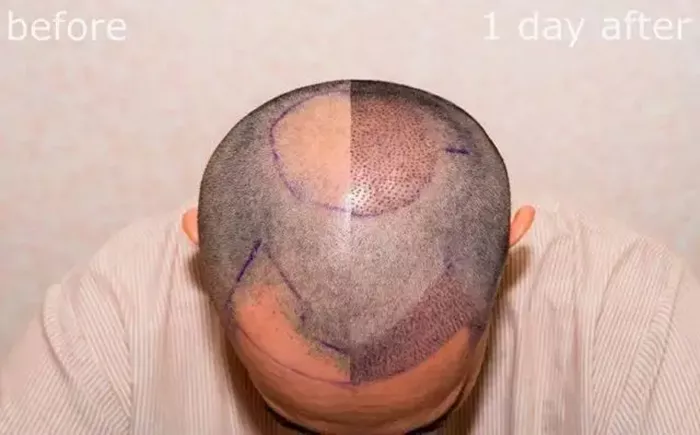Hair loss is becoming a problem for more and more people. Data shows that the prevalence rate of androgenetic alopecia among men in China is 21.3%, while among women it is 6%. In addition to affecting appearance, hair loss often brings psychological pressure to patients. As a result, many people choose hair transplantation surgery (referred to as “hair transplantation”) to improve their image. But is hair transplantation safe? How long can the postoperative effect last? Journalists interview experts to answer your common questions.
Mature technologies also carry risks and formal operation is the key
Hair transplantation surgery has been developed for many years and is a mature medical technology. Under proper operation, the surgical risk is relatively low and usually does not cause serious side effects or sequelae. The surgical process is not complicated. Under local anesthesia, medical staff will transplant healthy hair follicle units from the occipital bone area to the bald area. However, safety depends on formal institutions. If an unqualified institution or an inexperienced doctor is chosen, the surgical risk will increase significantly. Moreover, even if the operation is carried out properly, hair transplantation still has a small probability of side effects. Swelling and pain may occur within a few days after the operation, but they usually subside on their own. Although the operation is carried out in a sterile environment, there is still a possibility of infection. Once infected, it may affect the survival of hair follicles. Surgical injury, postoperative infection or quality problems of donor hair follicles may all lead to the failure of some hair follicles to survive. The donor area may still have small scars, but they can usually be covered by hair.
Two major phenomena after the operation need to be known, and the effect requires patience to wait
There are still two common phenomena after the operation that need to be understood in advance. Two to three weeks after the operation, the transplanted hair may temporarily fall out. This is the “shedding period” after hair transplantation and is a normal phenomenon. Most people can see about 60% of their new hair grow back after 6 to 9 months. The final effect requires patience to wait. In addition, if the extraction and transplantation of hair follicles are not precise, the new hair may have problems such as random growth directions and uneven distribution, which will affect the appearance. Therefore, choosing a skilled doctor is of vital importance.
There is a difference between theory and reality. The effect of hair transplantation varies from person to person
As for how long the effect of hair transplantation can last, from the principle perspective, the transplanted hair follicles come from the occipital region, which is not sensitive to androgens. Theoretically, they can survive for a lifetime and maintain the effect of hair transplantation for a long time. But the actual effect varies from person to person. A study involving 112 patients showed that one year after the operation, 81.25% of them were satisfied with the hair density and growth. Four years after the operation, only 8.92% of the people had a similar density in the hair transplantation area to that at one year, and more than 90% of the people experienced varying degrees of hair loss. Experts point out that the persistence of postoperative effects is related to factors such as individual care and the health status of the original hair. They suggest that patients regularly maintain scalp health after the operation.
Expert tips: Make three preparations before the operation
Experts remind that three preparations need to be made before the operation. Choose a regular medical institution, verify the institution’s qualifications and review the doctors’ surgical cases. It is necessary to fully communicate the expected effect, clarify the type of hair loss and the number of transplantable hair follicles, and avoid excessive expectations. After the operation, strict care is still required. Follow the doctor’s advice to clean the scalp, avoid strenuous exercise and irritating diet, and reduce the risk of infection. Hair transplantation, as an effective means to improve hair loss, should be carefully selected on the basis of scientific understanding. Experts suggest that patients with mild to moderate hair loss can first try drug treatment, and those with severe hair loss can consider surgery. It is essential to conduct a comprehensive assessment before the operation.
Related Topics
- Jill Biden’S Plastic Surgery Rumor Clue
- Meg Ryan Rumored To Have Had Plastic Surgery, Looks Unrecognizable
- Goldie Hawn’s Changing Look Fuels Plastic Surgery Rumors


